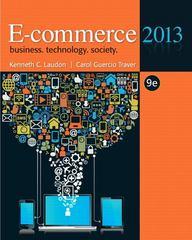Question
We are trading shares at t=0 with Stock Price P= 100 . Company that issues the shares declares they will NOT pay dividends. The share
We are trading shares at t=0 with Stock Price P= 100 . Company that issues the shares declares they will NOT pay dividends.
The share price is dependent on Country A Economy's performance. If performance is great, then share price goes UP by 40%. BUT if it is bad it goes DOWN by 11% with equal probabilities. The risk-free rate is 4%.
This product is an Asian exotic option with exercise taking place at t=1 but the person who exercises it with STRIKE PRICE K= $ 100, pays the STRIKE price and receives the payoff/ profit back in the next year t=2.
The payoff structure across the 3 years (now t=0, t=1 and t=2 ) is given by max function: max (P0, P1, P2).
In the case that it is not exercised at t=1, then the person who owns it does not gain any profit at t=2 .
Question 1:
Calculate the price of the option when the stock price is P1= 140 at t=1.
Question 2:
Calculate the price of the option when the stock price is P1= 89 at t=1.
Question 3:
What is the price of the option in the beginning at t=0 ?
Question 4:
If we wish to create portfolio at t=0 which includes shares and bonds (principal= $100) that mimics the payoffs of the option at t=1 , then what composition of shares and bonds should there be?
Question 5:
How much return should we expect for this particular option at t=0 and t=1 ?
Step by Step Solution
There are 3 Steps involved in it
Step: 1

Get Instant Access to Expert-Tailored Solutions
See step-by-step solutions with expert insights and AI powered tools for academic success
Step: 2

Step: 3

Ace Your Homework with AI
Get the answers you need in no time with our AI-driven, step-by-step assistance
Get Started


